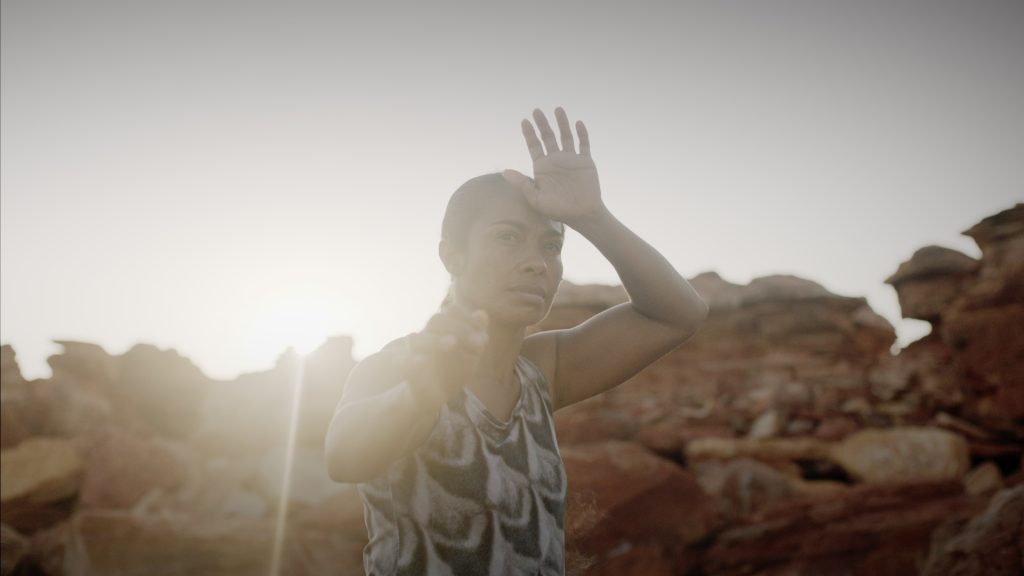Investigate the importance of visual arts for First Nations Peoples in Australia to express diverse identities, heal from trauma, challenge viewpoints and overcome injustices. Four exhibitions provide opportunities to develop an understanding of and respect for Aboriginal and Torres Strait Islander histories, cultures and languages. Contemporary artworks celebrate and challenge ideas of Australian identity, addressing colonisation and Indigenous knowledge systems.
Throughout 2025, a major new artwork is presented by Amanda Bell, a Badimia Yamatji/Yued Noongar artist, as part of the Judy Wheeler Commission. Challenging colonial power and violent collisions on unceded lands, the site-specific artwork gently intervenes in PICA’s building using light refraction, poetry and Noongar language.
In Term 2, celebrate the diversity, talent and passion of contemporary Aboriginal Art practice. The Revealed: New and Emerging WA Aboriginal Artists showcase is an unmissable event on the arts calendar. Presented at PICA for the first time Revealed is now proudly Aboriginal and Torres Strait Islander-led and governed by AACHWA. Shown alongside is GUDIRR GUDIRR, an intimate solo dance and video work performed by Dalisa Pigram and produced by Vernon Ah Kee and Marrugeku – Australia’s leading intercultural dance company connecting Indigenous and non-Indigenous artists and communities.
In Term 4, Joel Sherwood Spring, a Wiradjuri artist, presents a critique of how Indigenous knowledge is marketised in the mass media and how Aboriginal culture is used to benefit non-Aboriginal people. His film work appropriates the visual language of infomercials and big tech companies to challenge the ongoing exploitation of Indigenous people within capitalism.
Exhibitions and Dates
Amanda Bell : Five Ways to Make a Rainbow
7 February – 21 December
Revealed: New and Emerging WA Aboriginal Artists presented with AACHWA
5 April– 15 June 2025
Vernon Ah Kee with Marrugeku: GUDIRR GUDIRR
5 April– 15 June 2025
Joel Sherwood Spring: SETTLED
7 October 2025 – Sunday 21 December
Art Forms
Media Arts, Visual Arts, Performing Arts, Dance, Mixed Media, Film, Sculpture, Painting, Installation, Fibre arts
Curriculum Links
Aboriginal art, Aboriginal identity, Cultural appropriation, Cultural identity, Cultural pluralism, Cultural imperialism, Cultural interaction, Indigenous cultural and intellectual rights, Historical settings, Narratives, Regional arts; Experiences – Personal, Environmental, Expression of Feelings, Memories; Differences – Cultural diversity, Place, Actions & Reactions, Stereotypes; Inspiration – Experiences, Values, Univeral Issues – Human rights; Commentaries – Role of artist – Commentator, Function of Art – Ideological expression, Satire, Ceremony and ritual, Power
Cross-curricula Links
HASS, Languages, Technologies, Aboriginal and Torres Strait Islander Histories & Culture, Sustainability



